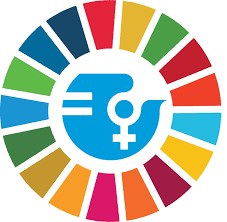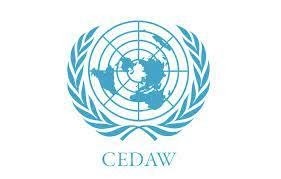International Engagement

The National Rural Women’s Coalition (NRWC) works as a conduit across national and global issues, to bring the voices of women from rural, regional and remote areas of Australia into national and international policy discussions, debates and agreements and to return the outcomes back to communities most affected by these agreements.
Issues for Rural, Regional and Remote communities sit not only in the national agenda they are also present within a global agenda. Working at the International Level allows for experiences to be shared, solutions to be sought, networks to be built and most importantly brings our women into the International Policy arena where monitoring and evaluation of human rights commitments take place.
The key areas of international engagement for NRWC are:

The Commission on the Status of Women (CSW)
(annually)
The Commission on the Status of Women (CSW) takes place at the United Nations in New York every year around February / March. This is the largest global gender equality policy space and each year draws over 5,000 attendees from Governments, Civil Society and International Non Government Organisations.
The Beijing Platform for Action (BPfA) 1995 and the Special Session of General Assembly - Beijing +5 Outcomes Document (2000)
(every 5 years)
The Beijing Platform for Action is one of the most influential, international policy documents regarding women’s human rights. It is considered one of the most progressive blueprints for achieving gender equality for women. It was negotiated and adopted by over 180 countries at the 4th World Conference on Women held in Beijing China.

AGENDA 2030 and Sustainable Development Goals
(ongoing)
Australia is committed to the Sustainable Development Goals (SDGs) as a universal, global approach to reduce poverty, promote sustainable development and ensure the peace and prosperity of people across the world. Rural, regional and remote areas of Australia are at the nexus of sustainable development and can share solutions, challenges and good practice.

Generation Equality
(2021 – 2022)
Generation Equality is a new UN Women Campaign designed to bring better results to gender equality through the implementation of the Sustainable Development Goals and strengthening the Beijing Platform for Action framework for implementation. It is designed to bring new actors into action around gender equality issues.

The Convention on All Forms of Discrimination Against Women (CEDAW) and CEDAW Optional Protocol
(every 4 years)
The Convention on the Elimination of all Forms of Discrimination Against Women (CEDAW) is an international treaty adopted in 1979 by the United Nations General Assembly. Described as an international bill of rights for women, it was instituted on 3 September 1981 and has been ratified by 189 states. Australia signed CEDAW in 1983.

Universal Periodic Review (UPR)
(every 5 years)
The Universal Periodic Review (UPR) is a unique process which involves a periodic review, by the United Nations of the human rights records of all 193 UN Member States. Australia reports under the UPR every 4 years and has just presented the third cycle of reporting in January 2021.
Quick Reference Documents
The Commission on the Status of Women
Beijing Platform for Action updates
Agenda 2030 and the Sustainable Development Goals
Generation Equality (2021 – 2022)
Convention on the Elimination of All Forms of Discrimination Against Women (CEDAW)
Universal Periodic Review (UPR)
CEDAW
Key Gender and Climate change documents:
COP25 Gender Action Plan
Gender & Climate Change FCCC/CP/2019/L.3 Conference of Paris Agreement
Australia and the SDGs
Report on the Sustainable Development Goals (Australia) 2018) DFAT UN High Level Forum on Sustainable Development (2018)
https://www.dfat.gov.au/sites/default/files/sdg-voluntary-national-review.pdf
